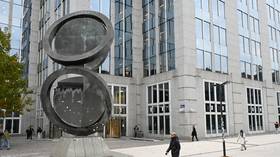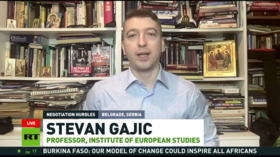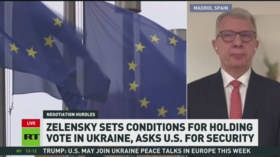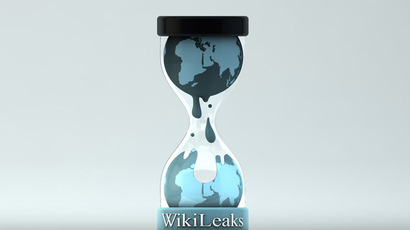Google's open door: Firm's execs average 1 meeting a week at White House - report
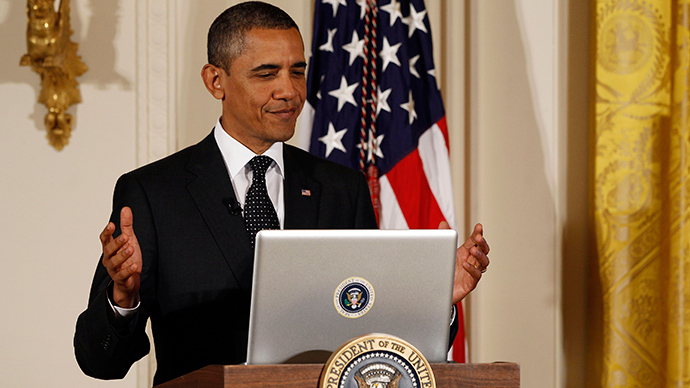
Google executives have met with White House officials an average of once a week since US President Barack Obama took office in 2009, according to a new report.
Visitor logs for the executive mansion and Obama administration emails obtained by the Wall Street Journal suggest that employees of the search engine giant sat down with the president’s team roughly 230 times during the last six years, including a slew of meetings with White House and Federal Trade Commission officials during the FTC’s antitrust investigation of Google that concluded in January 2013.
Ultimately, the FTC’s five-person panel unanimously agreed to end the probe without finding the tech titan at fault. Now according to WSJ journalist Brody Mullins, documents acquired by the paper “describe meetings involving Google, senior White House advisers and top FTC officials between the staff’s recommendation in August 2012 and the vote in January 2013.”
Mullins’s report, a front-page story published on Wednesday’s edition of the WSJ, claims that “Google’s access to high-ranking Obama administration officials during a critical phase of the antitrust probe is one sign of the internet giant’s reach in Washington.”
Google averaged one White House meeting a week since Obama took office. Comcast, 20 total. http://t.co/qfvMytXe5ipic.twitter.com/e8P6ENXztf
— Wall Street Journal (@WSJ) March 25, 2015
Reports of the burgeoning “revolving door” between Silicon Valley and Washington are legion: ex-execs from Google and Twitter were named the nation’s chief technology officer and deputy CTO, respectively, late last year, and just this week Google alumni Jason Goldman was named the White House’s new chief digital officer. Other reports detailing administration’s relationship with Google have surfaced routinely in years past, and WikiLeaks publisher Julian Assange writing a book on the corporation’s ties with the US government in 2014.
“Nobody wants to acknowledge that Google has grown big and bad,” Assange wrote. “But it has.” The tenure of its former CEO, Eric Schmidt, “saw Google integrate with the shadiest of US power structures as it expanded into a geographically invasive megacorporation,” Assange wrote.
Google meets with the White House once per week on average http://t.co/qGDOll2q0r But: https://t.co/ZUfh7WDAT5
— WikiLeaks (@wikileaks) March 25, 2015
Nevertheless, the latest report of Google infiltration of the White House raises new questions about that alliance, given the timing and frequency of the meetings uncovered by the Journal. One top lobbyist for Google, Johanna Shelton, had over 60 meetings inside the doors of 1600 Pennsylvania Ave. since 2009, according to Mullins. Yet during that same span, the article indicates, employees of telecom giant Comcast only visited the White House around 20 times. According to Mullins, Obama has mentioned the company in half of his annual State of the Union addresses, including the one he gave this past January when he hailed the company as a job creator.
Schmidt, the former CEO who has since joined several White House advisory panels, “was personally overseeing a voter-turnout software system” for Obama on the night of the president’s re-election in November 2012—two months before the FTC ended its probe—according to Mullins. In between, the paper uncovered, a lobbyist and a lawyer working on behalf of Google met with one of the president’s tech advisors during one of the literally hundreds of meetings between the two camps.
In 2014, the relationship between Google and Washington shot-callers grew further. According to the Journal, Google spent practically as much money on lobbying that year, $16.8 million, as Exxon and Apple combined.
“We think it is important to have a strong voice in the debate and help policy makers understand our business and the work we do to keep the Internet open, to build great products, and to fuel economic growth,” Niki Christoff, a spokesperson for Google, told the Journal.
“White House officials meet with business executives on a range of issues on a regular basis,” added Jennifer Friedman, a White House spokesperson. “These meetings help keep the White House apprised of outside perspectives on important policy issues. Our staff is cognizant that it is inappropriate to discuss issues relating to regulatory enforcement.”



